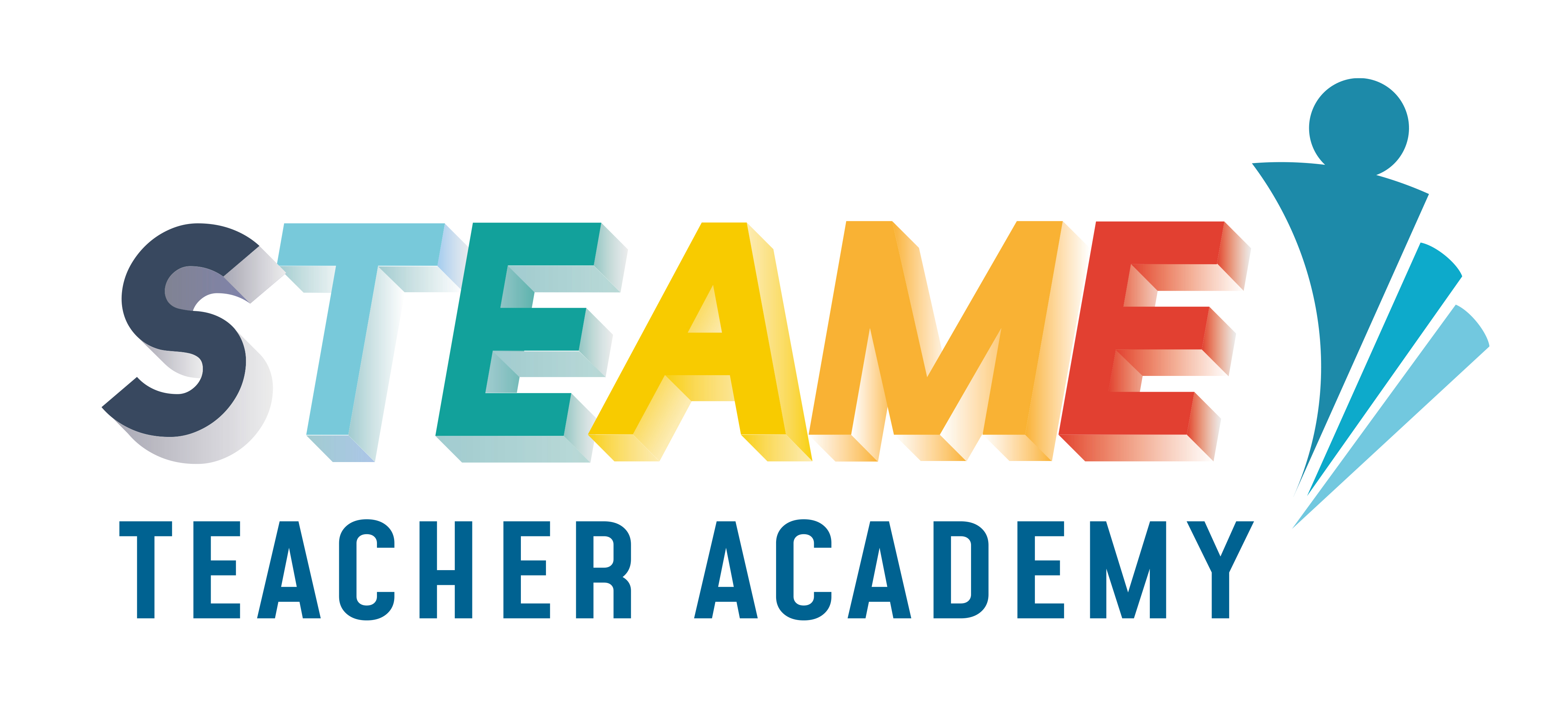EU Funding Projects
|
|
|||||
|
|
|||||

ONLIFE - Empower hybrid Competences for Onlife Adaptable Teaching in School Education in times of pandemic
Read more about the Project
Implementation period: 01 JUNE 2021 - 31 MAY 2023
Since Covid-19 emerged to a pandemic in 2020 it has compelled many governments around Europe to take extreme measures of lock down to a degree unimaginable until then. As a result, millions of Europeans were forced to stay home for an extended period of time. Unexpectedly teachers had to teach from home for the first time, students needed to continue learning from home for the first time and parents had to support their kids becoming in some ways a home teacher. This new reality found most teachers, unprepared to adapt their teaching, leaving, producing, creating, learning and living habits and be as productive and effective while staying at home. In order to help address this, the ONLIFE project aims to develop a methodology which will support the life adaptability of teachers in the online teaching process in School Education so they can have hybrid competences as teachers. ONLIFE aims at supporting the European Union priority Partnership for Digital Educational Reading TO ASWER TO THE CURRENT COVID-19 CRISIS WITH THE RIGHTS SKILLS AND COMPETENCE FOR SCHOOL EDUCATIONAL LEADERS, namely Teachers and school leaders. ONLIFE stands for Empower hybrid Competences for Onlife Adaptable Teaching in School Education in times of pandemic. The project aims at empowering teachers and school leaders to face the digital transformation of the educational system in time of crisis. Indeed, the goal is to reinforce the schools to provide high quality and inclusive digital education to their students through the development of:
A Guidebook “Pattern for enhancing digital technologies in School education (SE) *
A Training course for teaching in SE
ONLIFE Learning Paradigm (OLP): Teacher Competences, Methods & Approaches in SE*
Recommendation and guidelines for School System bodies in providing useful framework instruments to improve teaching quality.
Website
Press Release in Greek
Press Release in English
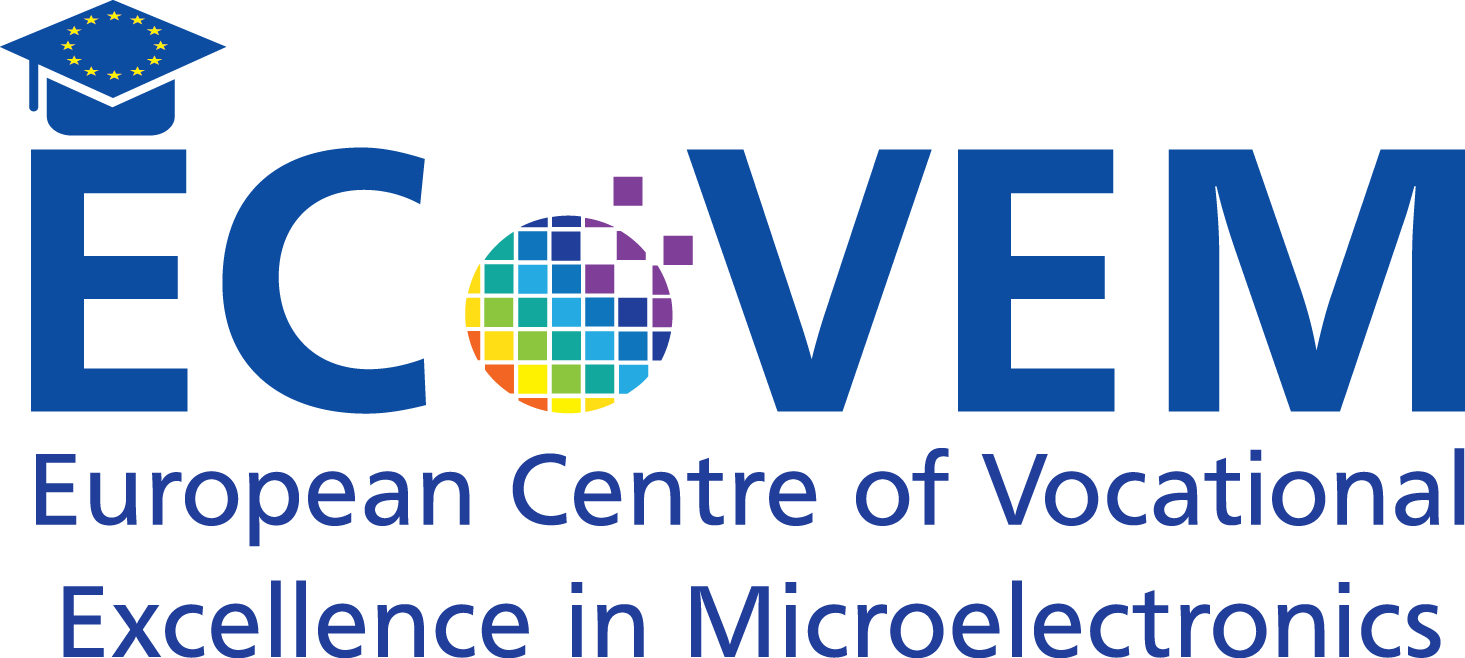
ECoVEM - European Cooperation platform of Vocational Excellence in Microelectronics
Read more about the Project
Implementation period: 01.11.2020 – 31.10.2024 (48 months)
Microelectronics is the most rapidly developing science representing the ground of the e-economy and e-society and its continuous training is crucial. In nano-era an integrated approach is necessary - new partnership between education and the world of work, to address the need for synergy between the education and industry, to foster the development of technological competencies and soft skills for the new jobs in microelectronics.
This Erasmus+ funded project aims to establish a transnational cooperation platform of Vocational Excellence in Microelectronics (ECoVEM) to tackle the challenges of the: digitalization, artificial intelligence, green technologies, gender equality in technology, integration of migrants.
The ECoVEM platform will bring together a set of local partners such as Initial VET (iVET) and Continuous VET (cVET) providers, polytechnics, research institutions, SMEs and industrial associations, social partners, national and regional authorities to:
- create a sustainable partnership for excellence in VET in Microelectronics at all levels from initial VET to tertiary education and continuing VET
- build on and complement the strong points/sectors of national VET systems and support the less advanced regions to achieve VET excellence learning
ECoVEM implements innovative instructional approaches towards life-long capacity to self-regulate learning, hard skills and soft skills using the ecosystems-based theoretical models and performance support systems.
ECoVEM embodies excellence in VET with 21 partners from 7 countries (Bulgaria, Germany, Spain, France, Italy, Cyprus, Norway) representing CoVEs for EQF 3-8, industry with national and EU industry associations, regulatory bodies in accreditation and certification and social organizations of women in technology and immigrants.

Pathways-Upskilling by Creating individualized Learning Pathways
Read more about the Project
Implementation period: 01.09.2020 - 31.08.2022 (24 months)
The “Upskilling by Creating individualized Learning Pathways” project intends to develop a toolkit for adult education and career professionals who work with unemployed low skilled adults. This toolkit for adult education teachers/trainers, as well as, career advisors/counsellors will enable low skilled unemployed adults to get recognition for their basic skills acquired through informal or non-formal learning, and to create a pathway for enhancing their employability and personal development.
Through the implementation of the project, the adult education and career professionals will have improved competencies to support adult learners, especially low skilled ones, in continuing their learning journey, having the opportunity to make informed learning decisions depending on their professional and personal priorities, and achieving a better future for themselves and their families.
The consortium of the “Pathways” project includes 6 partners from Spain, Cyprus, Slovenia, Luxembourg, Italy, and Greece and will be of 24 months duration from 01.09.2020 to 31.08.2022.
Website
1st Newsletter
2nd Newsletter
3rd Newsletter
4th Newsletter

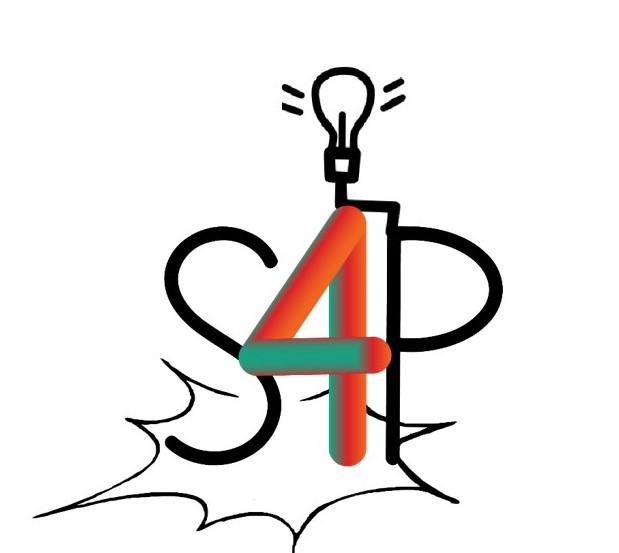
SKILLS4PARENTS
Read more about the Project
Implementation period: 01.11.2020 - 01.10.2022 (24 months)
Project Description:
The relationship between parents and children has changed over time due to the extended use of new technologies in our daily life, the modern ways of communication between children and the different ways of spending free time. Parents nowadays need to adapt to new information on how to communicate with their children, nurture their maturity and development and bring them up into confident and vigilant children.
“SKILLS4PARENTS” project aims to develop communication and parenting skills for parents as well as professional skills for adult educators setting the following objectives:
- To support learning parents in acquiring and developing skills and key competences
- To enhance the adult trainer's professional skills and ability to develop collaborative relationship with parents and their children.
- To extend the competences of adult educators who support and mentor parents in the teaching of various skills using digital technologies so that they can provide high quality learning opportunities tailored to the needs of both target groups
- To develop the innovative learning material for the adult educators/trainers/mediators and to adapt it to the digital platform for better collaboration between adult educators and parents and simultaneously, children
- To connect adult trainers and parents (and their children) through digital methods of learning and knowledge transfer, based on scientific findings of modern psychology and preventive sciences
- To encourage learning parents to develop and upgrade their personal growth, communication and parenting skills with adult educator's mentoring and guidance.
The “SKILLS4PARENTS” project consortium includes 6 partners from Cyprus, Belgium, Croatia, Italy, Netherlands and will be of 24 months duration from 01.11.2020 to 01.10.2022.
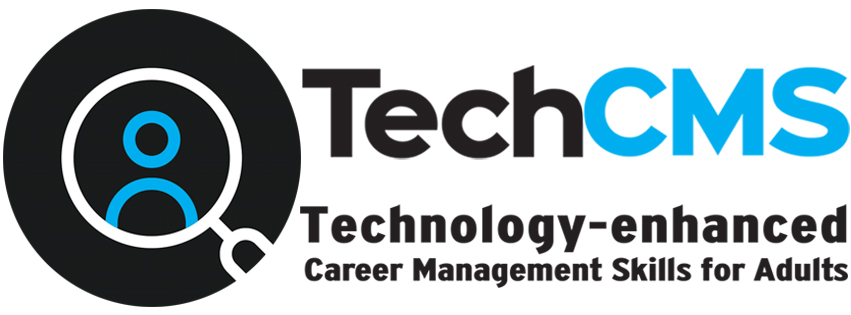
Read more about the Project
TechCMS (or Technology-enhanced Career Management Skills for Adults) is a project funded by the European Commissions under Erasmus + KEY Action 3 in which they participated 8 different partners from Italy, Greece and Cyprus, including the European Association of Career Guidance and 14 associate Partners from these three countries. All these partners came together with the intention to enhance the capacity of careers workers, through training, to provide CMS guidance to individuals and empower the latter’s CMS through the use of technology.
Definitions of career management skills (CMS) vary across EU member states at national level, and a shared understanding on the meaning of the term is a concern, as it could range from job-search skills to life skills (Sultana 2011). The lack of a European competence framework, results from the fact that “curricular traditions and guidance approaches differ too greatly among member states” (Thomsen 2014). The TechCMS project hereby adopts the European definition, provided by the ELGPN’s Resource kit (2012), referring to career management skills as “a range of competences which provide structured ways for individuals and groups to gather, analyze, synthesize and organize self, educational and occupational information, as well as the skills to make and implement decisions and transitions”. Citizens need to learn CMS to enable them to cope with various challenges throughout their lives, including more frequent career changes, and intensified job insecurity (Sultana, 2012).
Therefore the main aim of the TechCMS project is:
- To develop innovative career guidance services and tools for career management for individuals, for CMS acquisition with the use of ICT
- To provide concrete evidence for policy making and reform on CMS and ICT-informed career guidance, through the TechCMS Catalogue and Learning Model, Policy Roundtables and Policy Recommendations, addressed to policy-makers
- To provide open and distance learning, addressed to careers workers and individuals
For individuals’ questionnaire please click here.
For professionals’ questionnaire please click here.
Click here to view the flyer
Implementation period: 01/01/2020 – 31/10/2022 (34 months)
Website: www.techcms.eu

Read more about the Project
METIS (or MicroElectronics Training, Industry and Skills) is a project funded by the European Commissions under Erasmus + KEY Action 2 Programme Cooperation for innovation and the exchange of good practices - Sector Skills Alliances, with 20 partners, including including the European Association of Career Guidance, from 14 countries representing industry (Start-Ups, SMEs, Large Firms), national and EU industry associations, formal educational providers and regulatory bodies in the field of accreditation and certification.
Microelectronics are an essential component of virtually all aspects of our daily lives. Advanced skills of designing and manufacturing microelectronics components and systems are becoming of strategic importance to Europe because they are the brains of all modern services and products. With incredible processing power, they enable billions of computations per second and store vast data. Artificial Intelligence, smartphones, computers, cloud storage, automobiles, space travel and medical equipment all rely on microelectronics.
Today the microelectronics sector in Europe only is responsible directly 200,000 and indirectly 1,000,000 high-skilled jobs and the demand for new skills is unceasing because of the:
1. Emergence of Artificial Intelligence (AI), its impact on how data will be processed, analysed and shared.
2. Increased recognition of microelectronics as an essential strategic technology with huge impact at both geo-economic and political levels due to the relevance of microelectronics in critical areas such as automotive, energy, aerospace, healthcare, defence, telecom and data centres.
All the above have made it imperative for EU to advance its competitiveness in microelectronics otherwise Europe will not be able to take a leading position in digital economy and face critical challenges. To advance its competitiveness, the EU microelectronics sector needs to overcome severe skills shortages. In this light, METIS (brings a unique European partnership establishing a sustainable framework to:
• analyse key global trends affecting the sector and provide strategic insights and foresights
• anticipate emerging skills needs, identify jobs of the future, define related occupational profiles and monitor progress in the domain of human capital for microelectronics
• develop a Sector Skills Strategy to support the global leadership of the EU microelectronics industry, establishing operational linkages between skills and the future of the sector
• federate European synergies towards the needs of data-driven technologies such as artificial intelligence enabled by advanced microelectronics and its skills requirements
• establish an EU Microelectronics Observatory & Skills Council
• design and deliver a modular and blended curriculum, integrating work-based learning that uses OER
• pave the way for the pan-European recognition and certification of innovative VET
• use innovative tools such as industry mentoring to facilitate inter-generational transfer of knowledge in the sector
• embed social (diversity & inclusion) and environmental sustainability (circular economy) issues and EU policy goals in workforce development
METIS’ key novelty is that for the first time an industry association serving the electronics supply chain with 2,100 organizations, SEMI Europe, takes the lead to connect the worlds of VET and industry in Europe
To complete the survey click here
Implementation period: 01/11/2019 – 31/10/2023 (48 months)
Website: metis4skills.eu

Read more about the Project
InSign (or Advancing inclusive education through International Sign ) is a project funded by the European Commissions under Erasmus + KEY Action 2 Programme , initiated by 5 Partners from Germany, Portugal Greece, Cyprus and Slovenia, including the European Association of Career Guidance, and 27 associated partners in order to promote the communication between deaf and non-deaf as well as among international deaf students using International Sign.
As our previous experience with the international deaf community has shown that deaf students experience difficulties in communicating with non-deaf as well as with other deaf students from different nationalities due to the different languages used by both. Since all sign languages are different despite sharing common characteristics. Even though the International Sign language exists, it is not commonly used except in big international congresses and global events, like the World Federation of the Deaf and COINE. Furthermore deaf communities are very much closed in themselves and with the exception of a few cases, deaf students rarely contact other deaf and even less non-deaf people outside their family and close friends.
This castrating isolation they are forced to live in is one of the main causes for the very frequent mental diseases and depression observed in young deaf students. Therefore our position is that it is extremely important to provide channels for the communication and access to digital education materials in a common sign language that all deaf students can understand. It is also critical to facilitate the access of deaf students to education and promote their inclusion in the globalized society through the:
- Promotion of the inclusion of deaf students in international education and their access to international mobility
- Promotion of active citizenship of the deaf students in a globalized world.
In more detail the InSign project goal is to establish an innovative infrastructure to promote the communication between deaf and non-deaf as well as among international deaf students using International Sign through the production of the IS-Automatic Translator, and the development of applications to assist deaf students in educational settings and in daily life in international environment. Overall the project aims to promote inclusive school by transferring to the civil society innovative assistive technology research products that facilitate the access to education to deaf people in an international environment. INSIGN provides unique conditions to promote social inclusion, active citizenship and an improved educational experience to the European deaf community.
Implementation period: 01/09/2019 – 31/08/2022 (36 months)
Website: www.uni-siegen.de/zew/insign/

Read more about the Project
L-Cloud is an Erasmus+ Key Section 2 project in the field of Strategic Partnerships for school education. Cloud System adoption in education remains fragmented because while Cloud Computing offers many advantages, decision makers are largely unaware of the potential benefits for learning, teaching, administration and management. Therefore, training and support systems are needed to help educators, keep up to date with the rapidly changing Cloud Computing system environment. Leadership is also needed for pedagogical change, otherwise educators will continue the paradox of using new technological tools with old teaching methods. The need for the development of the L-Cloud proposed project has derived partly from the results of the project SoC (School on the Cloud - connecting education to the Cloud for digital citizenship network) which explored how education should respond to Cloud Computing developments and how Cloud-based services can be used to improve the quality of education and transform the way schools are led and managed. The SoC project has demonstrated that leadership for change is needed. The main issue today is no longer access to technology, but the capability to establish meaningful leadership for Cloud-based learning, teaching and administration as a sustainable basis for the evolution of Education.
L-Cloud is designed to promote the leadership for change and will produce the following main outputs:
1. Developing Guidelines for Skills and Competences for Adaptive Education Cloud Leaders
2. Developing a Qualification Framework for Education Cloud Leaders based on Skills and Competence. This process includes the definition and validation of the competence framework as well as the definition of an International Professional Certification Programme.
3. Designing a course for developing adaptive education cloud leaders
Implementation period: 01/10/2018-30/9/2020 (24 months)
Website: www.l-cloud.eu

UPGRADE: UP skillinG Refugees And aDult Educators
Read more about the Project
UPGRADE project consists in extending and developing the competences of low skilled migrant populations and educators/ professionals working in organisations, providing support to them, in order to assist them in the long-run in promoting a new dynamic training material for up-skilling low qualified adult refugees/migrants(linguisting support, soft and sector skills etc) resulting to access to job opportunities in the host country and to re-skill educators who work with refugees/migrants through a multicultural capacity building methodology.
Migrants are a crucial topic for EU Agenda as various strategies were put in place to look for complementary solutions to manage the issue of rising migration influx. The project is grounded on EU Partnership for integration (2017) with specific measures responds to integration needs of migrants groups.
This will be done via following outcomes:
- Capacity Building Training Course
- ReSupportMI e-tool Capacity Building (online guidance space for migrants and communication tool among professionals working with this specific target group)
- Multicultural and Skills assessment Tools for professionals working with migrants
The project has been designed based on the partners experience and understanding of professionals working with migrants needs and refugees/migrants learners. The project will bring together 6 partners from 4 different countries wishing to promote citizenship and the common values of freedom, tolerance and non-discrimination, strengthening social cohesion and helping people become responsible, open-minded and active members of our diverse and inclusive society by enriching adult educators intercultural competences.
This project will also include four transnational project meetings that will contribute to the preparation, implementation and evaluation phase of the project as well as one joint staff training event for the staff of the participating organisations so as to be able to inform the target group during the multiplier events and the pilot testing. All the information gathered through this project and the promotion of the project itself will then be uploaded on the ReSupportMi e-tool.
The total number of people, who will benefit (directy or indirectly) from or will be targeted through the project activities (Capacity Building Training Course, Methodology and ReSupportMI e-tool, Multiplier Events) during its duration, is moderately estimated at approximately 2500.
The project's expected results are the following:
o Increase the quality of services offered to refugees/migrants in the future;
o Fostering the integration process and refugees/ migrants economic participation in society;
o Improved levels of skills awareness for employability of refugees/ migrants;
o Enhancing civic orientation and active citizenship of refugees/migrants
o Increasing opportunities for refugees/migrants for professional development;
o Creating links between the host society and m refugees/migrants' communities;
o Development of competences in dealing with inter-cultural conflicts;
o promoting an awareness of the importance of cultural diversity in Europe;
o promoting understanding of cultural backgrounds and providing reflection in order to increase tolerance and to reduce prejudices and xenophobia.
The UPGRADE project is expected to have an overall significant impact on participants (refugees/ migrants, professionals working with migrants) competences and multicultural mindsets, based on their dealing with migrants / refugees:
o Fostering the integration process and migrants economic participation in society;
o Enhancing social inclusion via cross-cultural acceptance, improved understanding of multicultural environments and diversity concepts;
o Improved levels of skills awareness for employability on behalf of refugees/ migrants;
o Enhancing civic orientation and active citizenship of refugees/migrants;
o Creating links between the host society and refugees/ migrants communities.
Impact on local community:
o Strengthening the role of host communities in the personal and professional development of refugees/ migrants;
o Developing the sense of respect and tolerance, and combating towards different nations and cultures;
o Development of competences in dealing with intercultural conflicts;
Impact at national and EU level:
o Intensified sensitisation of policy makers and relevant stakeholders (centralised and decentralised) to further extend and develop migrants and educators' competences through the support non-formal and informal learning;
The projects innovation and added value lies in the very fact that it does not merely seek to train trainers and refugees/migrants. The project goes beyond the training scheme as it incorporates the promotion of EU cultural diversity, access in OLS (Linguistic Support Tool) and the utility of EU Skills Profile Tool.
Website: upgrade-erasmus.eu
Course Platform
Certificate Sample
1st Press Release, 2nd Press Release, 3rd Press Release, 4th Press Release
1o ΔΕΛΤΙΟ ΤΥΠΟΥ, 2o ΔΕΛΤΙΟ ΤΥΠΟΥ
4th Newsletter
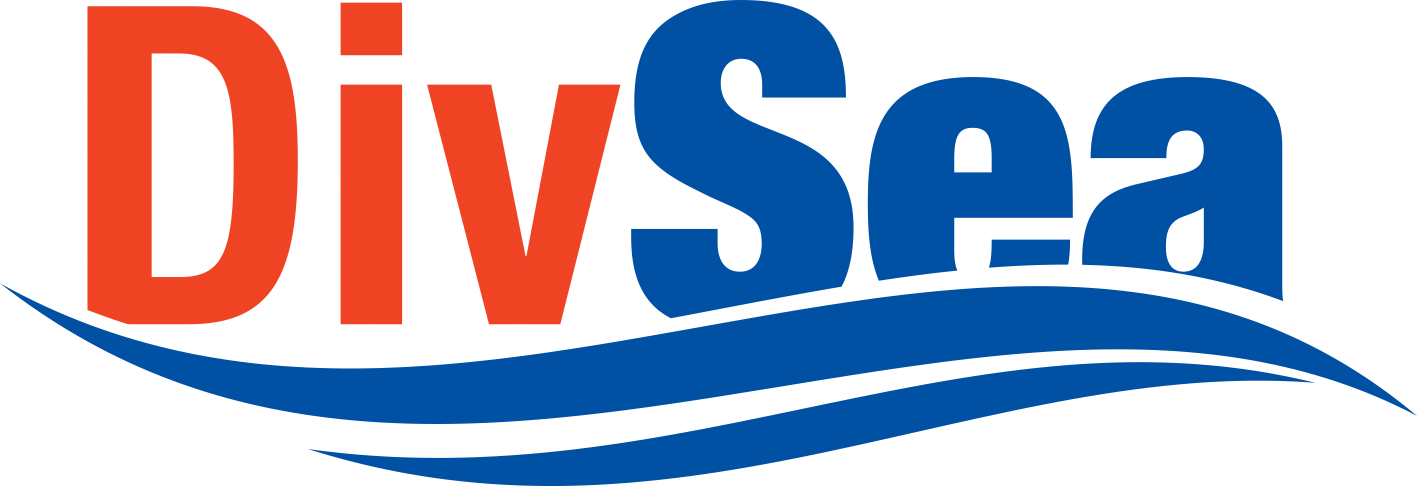
Diversification of Seafarers Employability paths through collaborative development of competences and certification-DivSea
Read more about the Project
DivSea is an Erasmus+ Key Action 2 project in the field of Strategic partnership for vocational education and training. The project funded under the aims to improve the employability skills and work opportunities for marine workers and to reduce the existing gap between the education and labour market, by diversification of career paths and skills recognition. Specifically, this project intends to build a collaborative network to continuously identify the gaps between marine labour market needs and educational field in terms of both hard and soft skills. This network will improve soft skills by continuous professional development of educational staff and marine workers in ICT to diversify career paths through collaborative short term training.
Implementation Period: 01/09/2016-31/08/2018
For more information: https://www.cmu-edu.eu/divsea/
International Assisted Communication for Education I-ACE
Read more about the Project
I-ACE is an Erasmus+ Key Action 2 project in the field of Strategic Partnerships for school education. Inter-personal communication and international cooperation play a key role in education and in a broader sense, in active citizenship. These opportunities should be equally available to all, promoting social inclusion.
However, the access to these opportunities by disabled people is constrained, in particular for deaf people due to the barriers they face in daily communication. These are facts that severely compromise the development of creative, emotional and social skills in deaf students. Barriers to education limit future opportunities. Any contribution to tear these barriers down promotes equity.The I-ACE project will establish an innovative infrastructure to promote fluid communication with, and between, deaf students from different European countries. This infrastructure includes an automatic European Sign Language Translator allowing the automatic bi-directional translation between sign language and written speech in six European sign languages thus reducing the communicational gap and contributing to promote the access to education and a better quality of life of deaf students.
The I-ACE project aims to transfer innovative research results and put them to the service of the European community.
Implementation Period: 01/11/2016-31/10/2018

Information and Communication Technology for Romanian Career Counseling
Read more about the Project
Project implemented within the Erasmus + Programme between September 2014 and August 2016
by CJRAE Vrancea (Romania) in partnership with Consiliul Judetean Vrancea (Romania), Association
Alternative Educationale (Romania), European Association of Career Guidance (Cyprus), com2go
(Cyprus) Education Innovation Transfer Centre (Latvia).
The total financing was 125.545 euro, with the main objective to develop online services for pupils career counseling.
More information about the project at www.ict4rocc.ro
|
|
